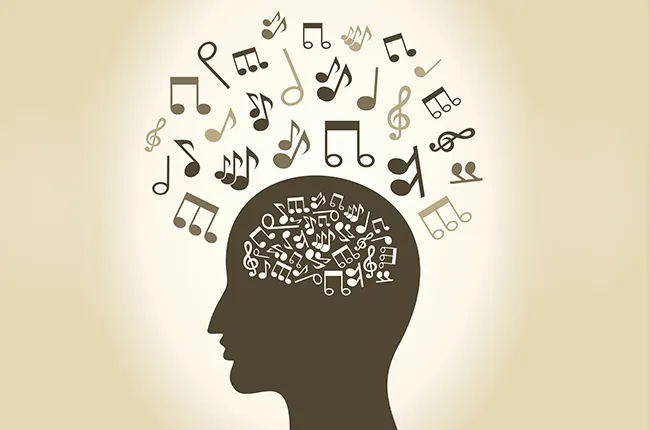
Kayla Jones | Writer
September 28, 2023
Students roaming the halls blasting music through headphones is not all isolating and distracting as one may believe. Wearing earbuds and headphones is very popular amongst students as the music playing in the background allows the day to become more bearable. This is because music is a positive stimulus for mental health. Music has a positive psychological effect on people as it increases neurotransmitters whose job is to carry chemical signals from one neuron to the next. Listening to music releases the neurotransmitters dopamine and serotonin. Dopamine affects memory and learning, releasing a long-lasting sense of reward or happiness. Similarly, serotonin impacts the regulation of sleep and mood. By listening to music, students can experience the positive impact of these neurotransmitters.
Music can have a positive impact on mood, depending on the genre of music (upbeat or solemn). By listening to upbeat music, the listener will be more inclined to feel happy, as the rhythm can increase one’s blood pressure and pulse rate. While slower music lowers blood pressure and pulse rate, listening to sad music does not affect the brain negatively; instead it calms stimuli and relieves overwhelming feelings.
“Music is something that I am familiar with that can calm me down and relax me whenever I’m stressed,” said senior Nicole Rod. “It can ease my anxiety, whether that be from a test or social anxiety.”

There is a large reliance on music for students who crave this sense of ease, focus, or an improvement in their memory as music supports the processing of cells. Though it can seem like a distraction, it is very much the opposite.
Students heavily rely on music to support them in daily activities. “I listen to music when I’m working out, doing homework, cleaning, and anything activity I might find it difficult to focus on,” said sophomore Quincy Connors. When it comes to tasks, music is a positive motivator. As a keyholder of creativity and expression, music impacts an individual’s current state of mind which affects the way the brain perceives the rhythm and lyrics.
On Campus, the SCHS Music and Mental Health Club celebrates the impacts of music. “I created the club for an inclusive and safe space for anyone,” said senior and club president Jade Torres. “Listening to music put me in touch with my emotions and allowed me to open up to others. The way I felt after my mental health got better was something I wanted to replicate for others who felt the same way I had felt.” Music is a perfect mental health coping mechanism. For students being the largest variety of those struggling with mental health, music is a strong provider of a long-lasting good feeling.

Leave a Reply